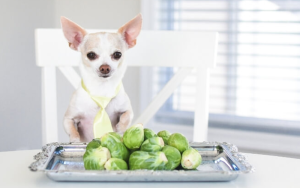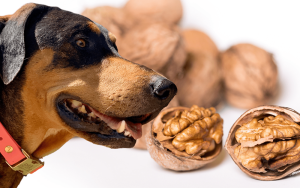Can Dogs Eat Carrots? A Comprehensive Guide to the Benefits and Risks

Carrots are a popular snack among humans, known for their nutritional value and sweet, crunchy texture. But when it comes to our furry friends, many dog owners wonder: Can dogs eat carrots? The answer is yes, carrots are not only safe
for dogs to eat, but they can also offer a range of health benefits. However, as with any food, it’s essential to understand the best way to introduce carrots into your dog’s diet and the potential risks to keep in mind.
In this detailed guide, we will explore everything you need to know about feeding carrots to your dog, including nutritional benefits, potential risks, serving suggestions, and common questions that dog owners have about this crunchy vegetable.
Nutritional Benefits of Carrots for Dogs
Carrots are packed with vitamins and nutrients that are beneficial to both humans and dogs. Here are some of the key health benefits of carrots for dogs:
1. Rich in Beta-Carotene and Vitamin A
Carrots are an excellent source of beta-carotene, which is converted into vitamin A in the body. Vitamin A is crucial for maintaining healthy vision, especially in low-light conditions. It also plays a key role in immune system function, skin health,
and cellular growth. For dogs, adequate vitamin A can help improve eye health and reduce the risk of conditions such as night blindness.
2. High in Fiber
Carrots are rich in dietary fiber, which promotes healthy digestion. For dogs, a high-fiber diet can help regulate bowel movements and prevent constipation. Fiber is also beneficial for dogs that are prone to gastrointestinal issues, as it helps improve
the overall efficiency of the digestive system.
3. Low in Calories
One of the main benefits of feeding carrots to your dog is that they are low in calories. This makes them an ideal snack for dogs that need to maintain a healthy weight or for those on weight management plans. Carrots can satisfy your dog’s chewing instincts
without adding a significant amount of calories to their diet.
4. Antioxidants and Phytochemicals
Carrots contain a variety of antioxidants, such as flavonoids and polyphenols, which help neutralize free radicals in the body. These antioxidants can support your dog’s immune system, reduce inflammation, and slow down the aging process. The phytochemicals
in carrots also have anti-inflammatory properties, which can be beneficial for dogs with arthritis or other inflammatory conditions.
5. Supports Dental Health
The act of chewing on a raw carrot can help improve your dog’s dental health. The crunchiness of the carrot helps remove plaque and tartar from your dog’s teeth, leading to cleaner teeth and healthier gums. Regular chewing also strengthens the jaw muscles
and promotes good oral hygiene. This is especially beneficial for dogs that are prone to dental issues or bad breath.
Are There Any Risks to Feeding Dogs Carrots?
While carrots are generally safe for dogs to eat, there are a few things to consider before you introduce this vegetable into your dog’s diet:
1. Choking Hazard for Small Dogs
Carrots, especially raw ones, can pose a choking hazard for small dogs or those that tend to gulp food without chewing properly. To reduce this risk, it’s important to cut the carrot into small, manageable pieces or serve it as grated carrots. This ensures
that your dog can safely chew and swallow the carrot without choking.
2. High Sugar Content
Carrots are naturally sweet due to their carbohydrate content, which can be a concern for dogs with certain health conditions, such as diabetes or obesity. While the sugar in carrots is natural and not as harmful as added sugars, it’s still important
to offer them in moderation. Overfeeding carrots, especially in dogs that are prone to weight gain or have diabetes, can contribute to an increase in blood sugar levels.
3. Allergic Reactions
Though rare, some dogs may have an allergic reaction to carrots. Symptoms of an allergy might include itching, swelling, or gastrointestinal upset, such as vomiting or diarrhea. If your dog experiences any of these symptoms after consuming carrots, it’s
best to discontinue feeding them and consult your veterinarian.
4. Digestive Issues from Overfeeding
Too many carrots, especially raw ones, can sometimes cause an upset stomach in dogs. This is typically due to the high fiber content, which can lead to gas, bloating, or diarrhea if your dog is not used to consuming high-fiber foods. Always introduce
carrots gradually and monitor your dog’s response to ensure they don’t experience digestive distress.
How to Safely Feed Carrots to Your Dog
Now that you know the benefits and risks of carrots, let’s explore the best ways to feed them to your dog. Below are some tips for incorporating this healthy vegetable into your dog’s diet:
1. Serve Them Raw or Cooked
You can feed your dog carrots either raw or cooked. Raw carrots are a great choice for promoting dental health, as the crunchy texture helps clean your dog’s teeth. However, cooking carrots can make them easier to digest, especially for older dogs or
those with dental issues. If you choose to cook carrots, steam or boil them without adding any seasonings, salt, or butter. Avoid using any additives that could be harmful to your dog.
2. Cut the Carrots into Small Pieces
For safety reasons, it’s best to cut carrots into small, bite-sized pieces, especially for smaller dogs. You can also grate the carrots or slice them into thin rounds for easier consumption. This will make it easier for your dog to chew and avoid the
risk of choking.
3. Use Carrots as a Treat or Meal Addition
Carrots can be given as a healthy treat or added to your dog’s regular meals. If you’re using carrots as a treat, be sure to limit the portion size to avoid overfeeding. For meals, you can mix grated or chopped carrots into your dog’s regular food for
an extra nutritional boost.
4. Frozen Carrots for Teething Puppies
Frozen carrots can be a great option for teething puppies. The cold temperature soothes sore gums, while the crunchiness of the carrot provides a satisfying chew. Just be sure to supervise your puppy to ensure they don’t bite off large chunks that could
cause choking.
How Much Carrot Can I Feed My Dog?
The amount of carrot you should feed your dog depends on their size, age, and overall health. In general, carrots should be given as an occasional treat or supplement to your dog’s regular diet, rather than a main food source. Here are some general guidelines:
- Small Dogs (under 20 lbs): 1–2 small carrot sticks or a few baby carrots per day.
- Medium Dogs (20–50 lbs): 2–3 carrot sticks per day.
- Large Dogs (50 lbs and above): 3–4 carrot sticks per day.
These are just general guidelines, so it’s important to adjust based on your dog’s specific dietary needs. Always consult with your veterinarian before making significant changes to your dog’s diet.
Common Questions About Dogs and Carrots
1. Can puppies eat carrots?
Yes, puppies can eat carrots, and they can benefit from the crunchiness for teething relief. However, it’s important to cut the carrot into small, manageable pieces to avoid choking hazards. Always supervise
your puppy when giving them carrots, especially if they are frozen.
2. Can dogs eat carrot cake or other carrot-based foods?
While carrots themselves are safe for dogs, carrot cakes and other carrot-based baked goods often contain ingredients like sugar, spices, and raisins, which can be harmful to
dogs. It’s best to avoid giving your dog these types of foods.
3. Are baby carrots safe for dogs?
Baby carrots are safe for dogs and are a convenient option for treats. However, as with regular carrots, you should cut them into smaller pieces for small dogs or to prevent choking. Also, avoid overfeeding
baby carrots, as they can still contribute to digestive issues or weight gain if given in excess.
4. Can carrots help with my dog’s weight?
Yes, carrots can help with weight management since they are low in calories and high in fiber. If your dog needs to lose weight or maintain a healthy weight, substituting high-calorie treats
with carrots can be a good strategy. Just be sure to monitor portion sizes to avoid overfeeding.
Conclusion
In conclusion, carrots are a healthy, safe, and nutritious snack that most dogs can enjoy. They offer a variety of health benefits, including promoting good digestion, improving eye health, supporting dental hygiene, and providing essential
vitamins and antioxidants. However, as with any new food, it’s essential to introduce carrots gradually and in moderation, taking care to ensure they are served in an appropriate size to avoid choking. If you have any concerns about feeding carrots
to your dog, it’s always a good idea to consult with your veterinarian.
By following the tips and guidelines provided in this article, you can safely incorporate carrots into your dog’s diet, providing them with a tasty and healthy treat they will love.
4o






